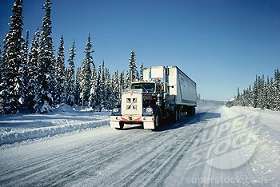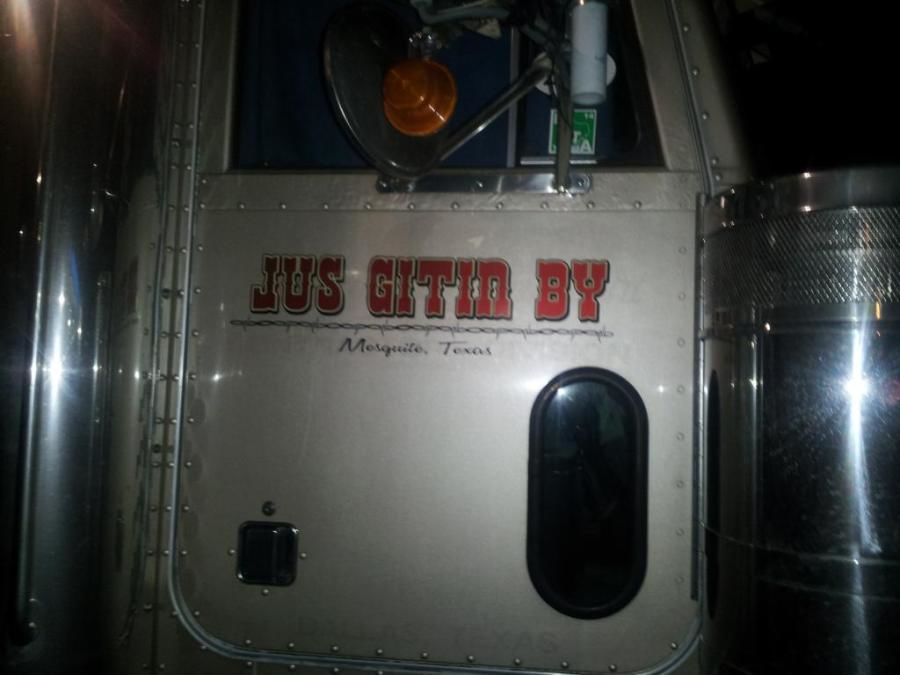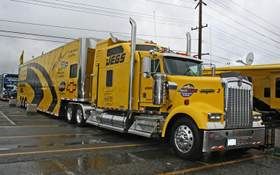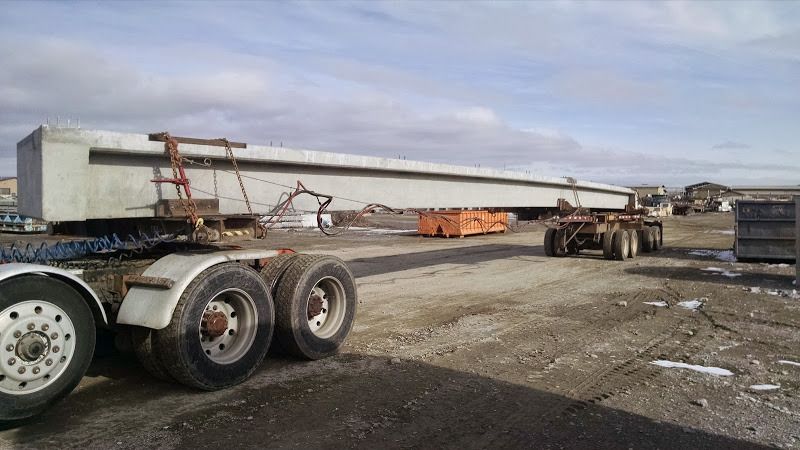Help Oh Wise Sages Of TruckingTruth
Topic 7202 | Page 1

Hi Richard, my answer is 1. I worked 2 and 1/2 years for the company i started with out of school. we got taken over by a company that is still running. they told us when they took over that teams would be given a raise and solo drivers would get a 4 cent a mile cut, I never pulled a load for them i bought my own truck and trailer. you can work as a company driver all you want and all you will be is better at being a company driver. there is really nothing to fully prepare you for all the changes and charges you will face. it is not hard to learn but the best thing you can do is have all your personal bills in order. debt paid down and some open credit and some cash on hand.
2. no advice on what truck you should get, you are the one that has to pay for it. make sure the truck is set up to do the type of pulling you are going to do and is mechanically sound. dont settle there are always trucks for sale.
3. an APU , diesel or electric is something you have to research. all the comforts that you use like refrigerator, microwave and bunk heater.
good luck. i cant wait until i own a truck again. soon i hope
APU:
Auxiliary Power Unit
On tractor trailers, and APU is a small diesel engine that powers a heat and air conditioning unit while charging the truck's main batteries at the same time. This allows the driver to remain comfortable in the cab and have access to electric power without running the main truck engine.
Having an APU helps save money in fuel costs and saves wear and tear on the main engine, though they tend to be expensive to install and maintain. Therefore only a very small percentage of the trucks on the road today come equipped with an APU.

Richard, I would not recommend you do this unless you have not only considerable trucking experience, but also some good business experience. If you can obtain the kind of financing necessary to go through a dealership, or have the kind of cash it takes to get into a nice truck, there are much better ways to invest your money. I've owned plenty of trucks before in a manufacturing business, and it was there that I learned the one thing about them that always held true. They will let you down just when you need them most, and it will cost you an arm and a leg, and sometimes even a pancreas just to get them back on the road! Look I consider myself to have been a fairly smart business person, and I know I'm a smart and efficient truck driver, but I have never been able to pencil out a business plan that makes me better money by being an owner operator. The opportunity is there, but the odds are stacked against you. There are very few winners in that game.
Have you ever given much thought to why so many of the major players in the trucking industry are constantly trying to lease their trucks to their employees? Just stop and think about that for a moment. If you had an asset that was supposedly a good investment why would you want to lease it to someone else hoping they could make lots of money with it? Heck no, you would want to be making all that money yourself. The reason I'm trying to make you look at it like this is because they have figured this stuff out, and it is the ownership of the truck that is hurting them. Their making all kinds of money in logistics and services they provide, but the assets required to provide those services are sucking the wind out of their sales. But, they must have those trucks to be able to do the things that are money makers for them. So finally some bean counter had the gonads to start putting that burden on the people whose ego was blinding them to the pitfalls of the trick. Thus we have the lease programs.
I know you are not talking about leasing, but the reason they lease those trucks is the reason you don't want to be an owner operator.
Look, if you are not happy with your income at Swift, there are lots of opportunities out there to look into. This is a working mans job, it is not a get rich easily type situation. I'm just giving you my opinion, but I don't want you to end up like this owner operator I met who named his trucking business after what was actually happening with his business. He had a nice truck, he was working harder than any company driver he knew, but he was:

Owner Operator:
An owner-operator is a driver who either owns or leases the truck they are driving. A self-employed driver.
HOS:
Hours Of Service
HOS refers to the logbook hours of service regulations.
OS that is why I come here for advice and not some forum on fb that would no sooner bash me for being a swift driver than help me, you guys actually help and I thank you for that from the bottom of my heart thank you.
I actually don't have a problem running with swift and the pay has been ok to decent, my dm is awesome she doesn't let me sit unless I ask for home time or absolutely have to take a 34 on the road and then she puts a loaf that had the time in where I can.
Yea that's what I heard from a few of the o/o's around the terminals and spa that when you need it the most it won't be there. Now I'm going to ask this and please don't take it as smart ass or rude because I have no other way to ask it, but isn't that what the pretrip and post trip inspections are for that the instructors and safety guys beat into our heads supposed to prevent? I know that is checking to make sure that you are road ready and safe but I also thought it was to also help with identifying problems early before they get bad. (Like I said please don't take that won't way I doesn't mean it to be disrespectful sounding I meant it as more input from the wise sages to fill in anywhere I have gaps in my information.)
Again thank you Old School for all the knowledge you have bestowed on me in my questions and forum rants.
One more question, this goes back to an older post I put it on here, when I am changing lanes from passing another truck I wait until I can see the entire truck in my right side mirror before I start moving back over. Is that enough distance or should I wait longer to move over. If I counted correctly is about 4 seconds gap between us.
Terminal:
A facility where trucking companies operate out of, or their "home base" if you will. A lot of major companies have multiple terminals around the country which usually consist of the main office building, a drop lot for trailers, and sometimes a repair shop and wash facilities.
Dm:
Dispatcher, Fleet Manager, Driver Manager
The primary person a driver communicates with at his/her company. A dispatcher can play many roles, depending on the company's structure. Dispatchers may assign freight, file requests for home time, relay messages between the driver and management, inform customer service of any delays, change appointment times, and report information to the load planners.Now I'm going to ask this and please don't take it as smart ass or rude because I have no other way to ask it, but isn't that what the pretrip and post trip inspections are for that the instructors and safety guys beat into our heads supposed to prevent? I know that is checking to make sure that you are road ready and safe but I also thought it was to also help with identifying problems early before they get bad.
Sure Richard, the pre-trip helps to avoid problems that will cause you to shut down for the day, but usually those are just things that are visible, like hoses or belts, wires, or filters.
Let me share a scenario with you that happened to me once. I'm going down a mountain in Virginia and everything is going just fine my jake brake is doing it's job of holding back my truck and things are sounding good when all of a sudden my engine starts sounding sort of like I have a bad muffler and I start gaining speed. I use my brakes as needed and get myself to the bottom of the mountain and pull over. The engine doesn't sound right, I mean it sounds bad. During my pre-trip that morning I checked the oil and it was just fine. I checked it at the bottom of the mountain and about half of it is gone! I dropped a valve while descending that mountain which knocked a hole in the piston and it was sucking the oil out and burning it just as fast as it could. After it was all said and done - $31,000.00 for a new engine.
Now I don't know exactly what caused that valve to fail, but it didn't have anything to do with my lack of doing a pre-trip I can assure you. Trucks are mechanical things, and mechanical things break eventually.
I was a company driver in that scenario, but had I been an owner operator not only would I have had the expense to cover of that engine failure, but I would have also had about two or three weeks of not working, and that is what really can bite you in the... tail!
As far as your question about passing another truck, yeah it sounds alright to me, but I didn't know Swift trucks passed any other trucks - Just Kidding! (don't take it as smart ass or rude)
Owner Operator:
An owner-operator is a driver who either owns or leases the truck they are driving. A self-employed driver.
HOS:
Hours Of Service
HOS refers to the logbook hours of service regulations.
Yea every once in a while I get lucky and someone is slower than me. Kinda one of the reason for wanting to go o/o wanting to be able to run at a safer speed than 62/63 especially anywhere other than west sea board lol. And I'm getting tougher skin while with swift so I'm used to the jokes, what bugs me when people label all swift drivers badly because of the few bad apples out there. And yea I follow you on that scenario, now I understand that pre and post trip is only for what we can see and last I checked I'm not superman and don't have xray vision so I got you on that. Thanks OS again this is why I come here for advice.
Yea every once in a while I get lucky and someone is slower than me. Kinda one of the reason for wanting to go o/o wanting to be able to run at a safer speed than 62/63 especially anywhere other than west sea board lol. And I'm getting tougher skin while with swift so I'm used to the jokes, what bugs me when people label all swift drivers badly because of the few bad apples out there. And yea I follow you on that scenario, now I understand that pre and post trip is only for what we can see and last I checked I'm not superman and don't have xray vision so I got you on that. Thanks OS again this is why I come here for advice.
Most of the "training companies" (Swift, Prime, CRE, etc.) get "bad raps", because of all the newbie drivers that - well - make newbie-driver mistakes.
It is what it is - and everyone has to start somewhere.
I had looked into buying a rig a few years ago - and going out on my own (well, leased on to a carrier that a friend owns) - and even "fully capitalized" (going all cash - no debt service), it was just to high risk a proposition at the time. There's a lot of overhead that goes into ownership - not the least of which is sucking a valve and having to buy a new motor (especially when you don't have the $30K or credit line to do so).
Pre/post-trip inspections might reveal some "obvious defects" - but the reason they are required is more for safety, than to prevent break-downs. You are looking for the same things DOT is looking for - and they will put you OOS , NOT because they are worried about you having to buy a new motor, but because they are trying to prevent a catastrophic failure that will have you taking out "soccer moms minivan full of kids".
Rick
DOT:
Department Of Transportation
A department of the federal executive branch responsible for the national highways and for railroad and airline safety. It also manages Amtrak, the national railroad system, and the Coast Guard.
State and Federal DOT Officers are responsible for commercial vehicle enforcement. "The truck police" you could call them.
OOS:
When a violation by either a driver or company is confirmed, an out-of-service order removes either the driver or the vehicle from the roadway until the violation is corrected.

Richard, I am a proponent of owning your own truck and I will soon but there are many things that you need BEFORE you even think about it. I will not do it unless I have the cash in hand.
1. After getting your truck and trailer you also need 3-6 months worth of expenses. This includes your wage and taxes.
2. You need $30,000 to $50,000 to cover a major catastrophic failure. The way I look at it is that if the motor, transmission and both drives go out at the same time, I want the cash to fix them all. Or if the truck burns to the ground, I want to be able to replace it. Think of the worst thing that can happen and make sure your have it covered.
3. Specialize in something. When you specialize in something like maybe refrigerated hazmat loads, you get paid more.
4. Realize that having your own truck is a 24/7 obligation. If something needs doing you need to get someone to do it or do it yourself. You can not wait until tomorrow because tomorrow there will be more things to do.
My ex boss would always look at the gross number for the load but he never looked at what it cost him to do that same load.... For instance he was moving some trees once and getting 1100 per load but he was deadheading back and it was a 2 day turnaround. Well that cost him 400 in fuel at the time so he was making $300 per day before the rest of the expenses came out. At the same time he could have been hauling concrete blocks for $700 and the fuel costs were $200 and you could make a round trip in one day. With this he would have made $500 per day. That is a $200 per day difference.
Owning a truck is a huge responsibility and you have to commit to it or you will not make it. Most truck owners fail because they do not have business experience or even just a little common sense and they do not know how to figure the finances like my old boss. It is a good thing that he was driving the truck himself because if he had to pay a driver he would not have had the money to pay his insurance and other expenses.
Deadhead:
To drive with an empty trailer. After delivering your load you will deadhead to a shipper to pick up your next load.
HAZMAT:
Hazardous Materials
Explosive, flammable, poisonous or otherwise potentially dangerous cargo. Large amounts of especially hazardous cargo are required to be placarded under HAZMAT regulations
Pat.....even with all that there's still no skating around that 3% profit margin in the industry. I don't care how much cash you have, driving experience, business experience, or anything else......commodity pricing is still commodity pricing and the profit margins will be razor thin over time no matter what you do. I can't for the life of me understand how anyone can look at owning a truck as a good business opportunity.


Pat.....even with all that there's still no skating around that 3% profit margin in the industry. I don't care how much cash you have, driving experience, business experience, or anything else......commodity pricing is still commodity pricing and the profit margins will be razor thin over time no matter what you do. I can't for the life of me understand how anyone can look at owning a truck as a good business opportunity.
Brett, I don't know where you get the 3% margin from but what I see EVERY day is well above that. Heck one guy has not moved his truck in a month and a half because there are not many loads this time of year so he takes it off. I am not talking about pulling a box around. One load we got 20k to bring from New Mexico to Montana. Took a 9 axle trailer and a flatbed to move it and we did 2 moves like that. We rarely go out of the surrounding states though and that was an exception. Last summer we were running belly dumps for $100+ per hour. I think we would maybe burn $150-200 in fuel for the day. We are continually getting $4.00 plus per mile for flatbeds and more for RGN's. Unless we are running a belly dump or I am moving a lot of asphalt equipment I very rarely pull the same trailer two days in a row. Heck I have taken 5 loads of scrap to billings and I have used 4 different trailers, including a lowboy, to do it.
You think too much like the big dry van outfits and yes they are probably at a 3% margin but you also can't have an industry that is over 90% companies with 20 or fewer trucks and say they all operate at that margin. The problem with your 3% is that it is an AVERAGE. Some make more and some make less. I agree that pulling a dry van does not make sense to me but if you specialize that is where the money is. You think we got paid like a dry van to move this beam?

We run day cabs and the last 6 months of last year I stayed in a hotel a total of 6 times. I may have been dog tired when I got home but I slept in my bed. Shorter hauls pays better than long hauls in my opinion.
Being able to change from hauling say a belly dump to hauling a beam is a good thing also. That is the key to the success of these guys because there is just not that many of one type of load and sometimes one pays better than the other depending on the time of year. Oh and we drive FAR fewer miles per year. My truck is a 97 and it only has 1,074,000 miles on it. OTR trucks can get half of that in 4-5 years or less if running teams. The truck is 17 years old and just at one million miles. That is 7 years or more past what an OTR truck would be.
No offense but you have driven for the bigger outfits and do not know the entire industry. I even think that these guys that go OTR with flatbeds are crazy too.
Once you find your niche and be smart about your purchases then yeah trucking can make a lot of money.
OTR:
Over The Road
OTR driving normally means you'll be hauling freight to various customers throughout your company's hauling region. It often entails being gone from home for two to three weeks at a time.
Day Cab:
A tractor which does not have a sleeper berth attached to it. Normally used for local routes where drivers go home every night.
Dry Van:
A trailer or truck that that requires no special attention, such as refrigeration, that hauls regular palletted, boxed, or floor-loaded freight. The most common type of trailer in trucking.New Reply:
New! Check out our help videos for a better understanding of our forum features

















Preview:








 TT On Facebook
TT On Facebook
So I'm starting to do research into becoming an O/O and I was wondering if I could get some advise on this, I thought about posting this else where but I trust the advice I get here and I don't feel like a failure because I currently drive for swift.
1. How long did you wait till you got your first truck? And by wait I mean how long did you run the trenches of company driving and/or just getting your road experience.
2. What would you recommend? I have only driven a 2013 Volvo (current rig) and a 2015 KW for extended periods of time, not including the trucks I drove in training.
3. What optional upgrades should I absolutely need or can't live without while on the road?
That's all for now like I said I'm just starting the research on this, and I plan on going through a dealership to get the truck and not going through lease/op through the company.
Thank you guys in advance for your information and wisdom.